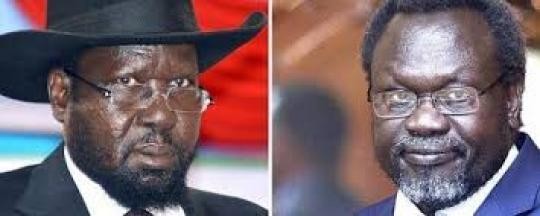An American think-tank has published a report calling for an international transitional administration established by the United Nations and the African Union to be placed over South Sudan.
A special report entitled “Ending South Sudan’s Civil War,” published by the the US-based think-tank Council on Foreign Relations, said that the remaining path to protect South Sudan’s sovereignty and territorial integrity, restore its legitimacy, and politically empower its citizens is through an international transitional administration established by the United Nations and the African Union (AU), to run the country for a finite period.
The report pointed out that the civil war left South Sudan on the cusp of full-scale genocide, with its sovereignty discredited by warring elites.
Katherine Almquist Knopf, the author of the report and director of the Africa Center for Strategic Studies based at the National Defense University, noted that an international transitional administration is the only realistic path to end the violence and to allow South Sudan the kind of “clean break” from its leaders and power structures that can restore the country to viability.
She explained that the proposed international transitional administration would not necessitate an investment costlier than what the United States is already spending—more than $2 billion since 2013 (and more than $11 billion since 2005).
The report produced by CFR’s Centre for Preventive Action recommended the United Nations and the AU to lead the transitional administration with an executive mandate for ten to fifteen years to maintain the country’s territorial integrity, provide basic governance and public services, rebuild the shattered economy, and establish the political and constitutional framework for the transition to full sovereignty.
It noted that opposition to a UN and AU transitional administration could be mitigated through a combination of politics and force by working with important South Sudanese constituencies frustrated with President Salva Kiir and oppostion leader Riek Machar and their cronies.
The report called for deployment of a lean and agile peace intervention force to combat and deter the remaining spoilers once they have been politically isolated.
Knopf noted that similar efforts have previously succeeded in Bosnia and Herzegovina, Kosovo, East Timor, Cambodia, and Liberia.
The author emphasized that brokering such a transition will require committed diplomacy by the United States in close partnership with African governments.




